

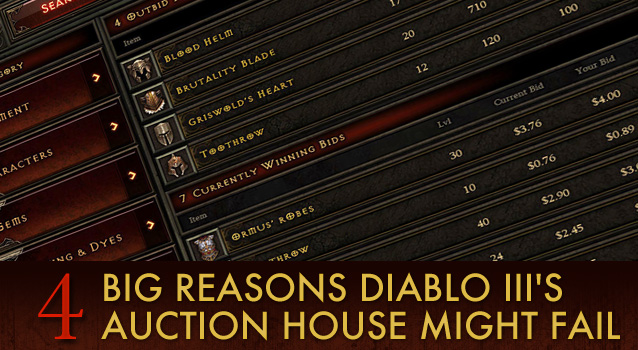
[Update: An earlier version of this post was based on outdated information from the official FAQ and some arguments that were, in hindsight, ill-conceived. This led to commenters pointing out that I am an absolute moron, a tool, and unfit to flip burgers. I'd like to think those things are only about 75% true, but many of the inaccuracies pointed out were valid. I've now removed and rewritten sections of the article to remedy that.]
When Blizzard announced that Diablo III would feature a real money auction house, there was no shortage of uproar from the community. After the dust settled, though, most gamers, myself included, were able to see the logic behind Blizzard's decision.
Any popular online game is going to have a black market for items, and by offering an official, institutionalized alternative, Diablo III will hopefully cut down on the number of people who get scammed in these transactions. On a purely theoretical level, it's a rather brilliant example of designing your game to account for human nature, rather than fighting against it every step of the way.
That being said, not ever last detail of the auction house system sounds perfect. Some of Blizzard's decisions seem questionable, to say the least. Here are four big problems that might wind up turning the system from a good idea into an absolute mess.
Problem 1: Real money might harm the gold-only auction house.
Diablo III will have both a real money and a gold-only auction house, and in a perfect world, the two systems would function as straight up alternatives to one another. Don't want to follow the market closely? Just stick to the gold-only auction house, where there's no financial risk if you overbid to get something you want. Feel like you're savvy enough to play the markets and come out on top? Try your hand at the real money auction house. Pretty simple.
Unfortunately, the economics might not pan out that way. Since both systems will be accessible to all users, third party analysts figure that the gold-only auction house will primarily be a place where sellers post items that are too low in value to sell on the real world auction house without taking a loss in the fees. If you find an item that's especially rare, the obvious choice is to just auction it off for real money. As Blizzard has recently updated the auction house to remove all fees for listing an item, there's no reason not to try, since you won't lose anything if the item doesn't sell.
If this proves true in the extreme case, the large bulk of the rarest items might wind up sequestered on the real-money auction house, meaning players who are unable or uninterested in spending actual cash will have access to a much narrower selection, and they won't be able to get as much out of the auction house as they might have if the real-money option didn't exist.
Like most of my reservations about the system, nothing here is entirely cut and dry. The fact that you can sell gold for real money means there will be an actively fluctuating exchange rate between the two currencies, and in theory, you can always sell an item for gold and then sell that gold for cash to clear the exact same amount. That means there will still be a real-world profit motive for people to auction top tier items on the gold-only auction house, though the added layer of abstraction might be enough to turn sellers away and limit selection to some degree.
Problem 2: Items you buy on the real money auction house are region-locked.
Okay, this one isn't a fatal flaw so much as a minor incovenience, but players who want to keep characters on multiple region servers (which Blizzard is most definitely allowing after a backlash from the StarCraft II community) won't be able to transfer items that they've purchased in the auction house.
Worse still, if you pony up some real cash to buy nice loot, then move to another country for any reason, you'll either need to deal with terrible lag or lose everything you've invested. Like I said, not a deal breaker, but certainly a pain in the ass.
Perhaps Blizzard wanted to avoid die-hard traders playing the different markets against each other to maximize their profits. Personally, I think that'd just add another level of fun, but I can understand why Blizzard might want to avoid it.
If that's in fact the case, they could very easily have made the auction house a global offering. Many of the region servers will already straddle international borders, so it can't be legal problems or concerns over currency exhange that are holding them back. This just seems like a rather arbitary limitation on the market.
Problem 3: You can buy and sell gold.
In addition to items, Diablo III's auction house will allow you to sell your in-game gold for real money. There nothing wrong with that on the surface, really. Virtual gold is just as much a commodity as anything else in the world, and the gold trade will be a key part in ensuring the game's economy stays healthy.
Unfortunately, history shows that the fiercer the competition, the bigger the risk that groups will resort to gold farming, where large groups of poorly-paid laborers work to earn gold as quickly as possible. In the most extreme cases, this can mean slave labor from Chinese political prisoners.
Yes, this sort of thing would likely happen just as readily on the black market as in the official auction house, but Blizzard has ensured that competitive pressure will be at its highest by turning their gold market into a centralized currency exchange. When you go to buy gold (or any other stackable) in the auction house, the game will automatically find the lowest purchase price for the quantity your requested, even if it has to go to multiple sellers to do so.
That means there's going to be unprecedented pressure to offer the lowest possible price for gold. As farmers who resort to shady tactics will always have the competitive edge over average players, there's a serious risk that Diablo III could make the problem worse than it already is by making what was once a marginalized practice — selling in-game gold for real money — legitimate and accessible to everyone.
Still, you can't really hold Blizzard responsible for the problem in the first place, and this is a essentially damned-if-they-do, damned-if-they-don't scenario for them.
Problem 4: You can use items purchased from the auction house in PvP.
Yep, this is the big one.
If Diablo III were just a single-player/co-op game, all of the above problems would probably just fade away into the background. Hey, if someone wants to spend money to make the game a bit easier for themselves, so be it, right?
Unfortunately, the inclusion of competitive PvP arenas, complete with with rankings and a fully fledged progression system, means that there's a real incentive to collect loot that's better than everyone else's.
It probably isn't be fair to say that the auction house enables you to buy your way to victory, as gear will still be level locked, so you'll need to actually play the game to stay competitive, but there's no question that it ruins any chance at a level playing field. If we're looking at a match between two players of equal skill, there's no question that the one with the better gear is going to come out on top, and the auction house will be a quick-and-easy way to get the best items available.
Sadly, there's no easy solution to this one. If Blizzard makes it so that PvP characters can't used items purchased from the auction house, they'll just piss of the fanbase and send players flocking back to the black market. If they allow them, the only reasonable outcome is that top tier players will need to shell out money to stay competitive, and any hopes of Diablo III's PvP becoming a respected eSport pretty much evaporate.
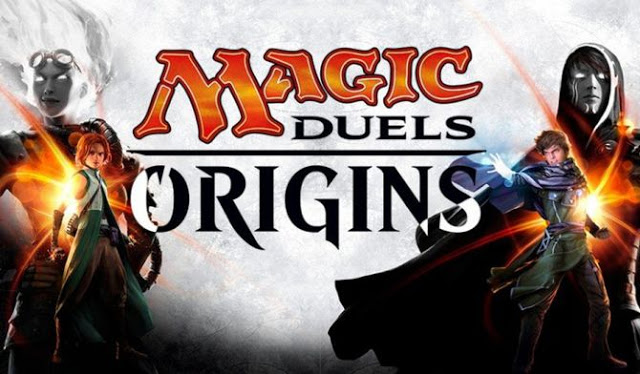

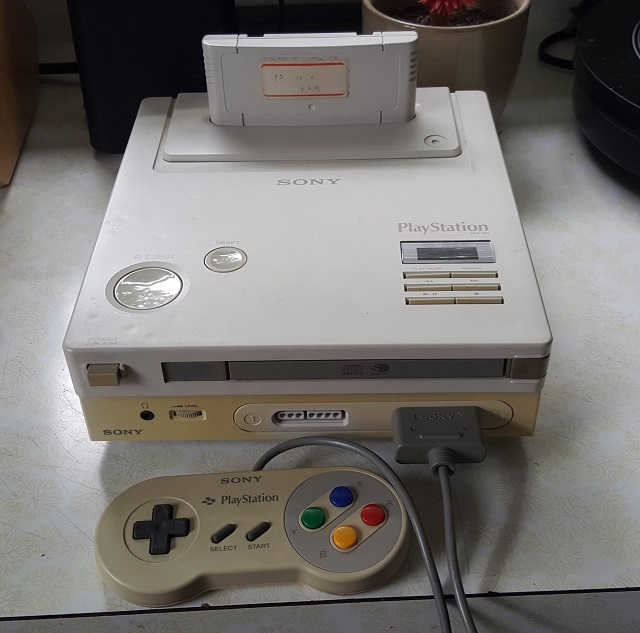
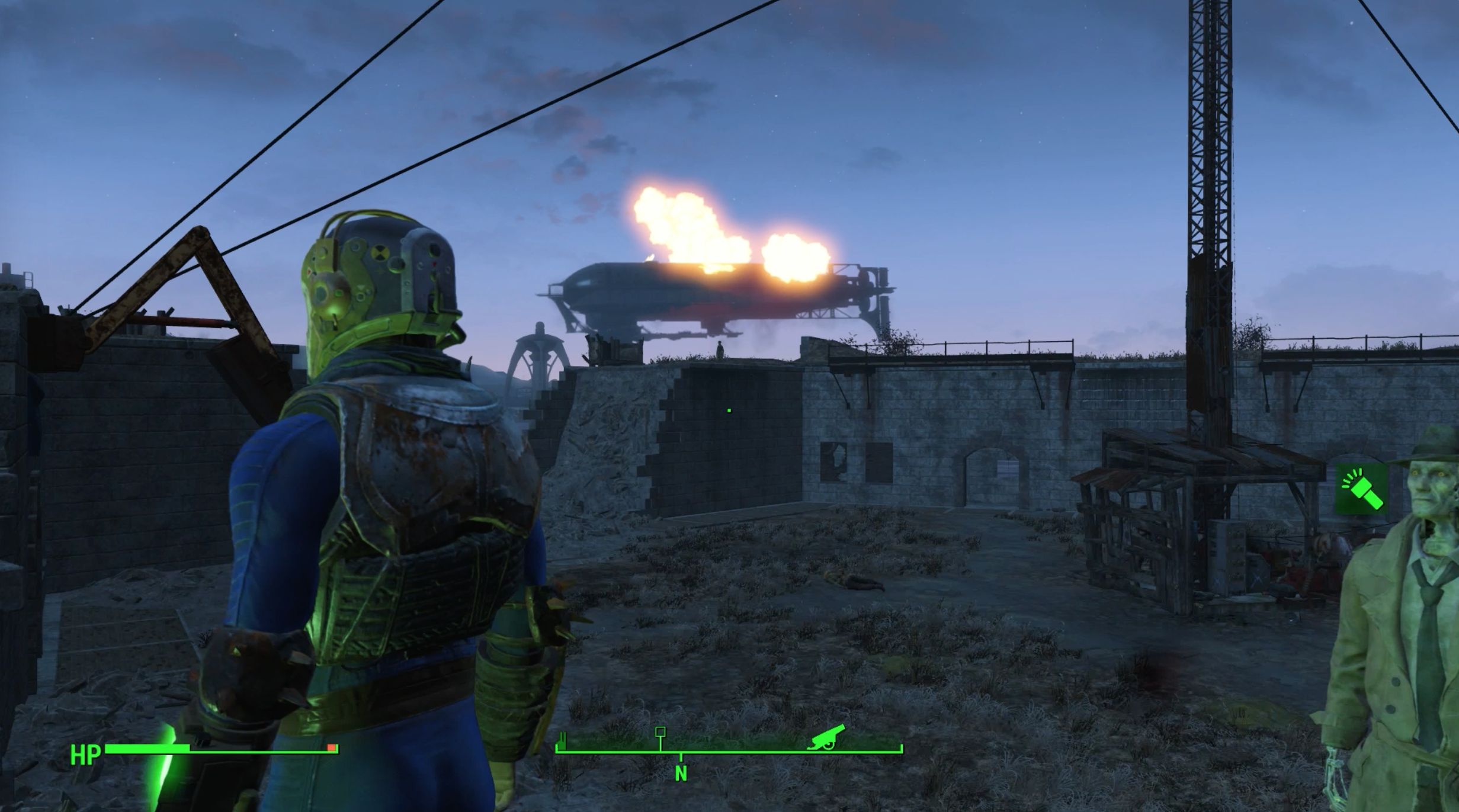
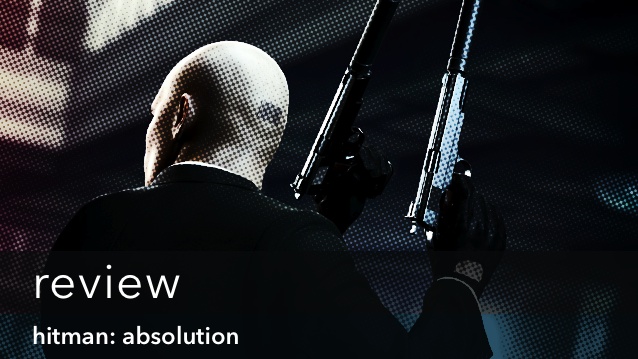 Hitman: Absolution Review
Hitman: Absolution Review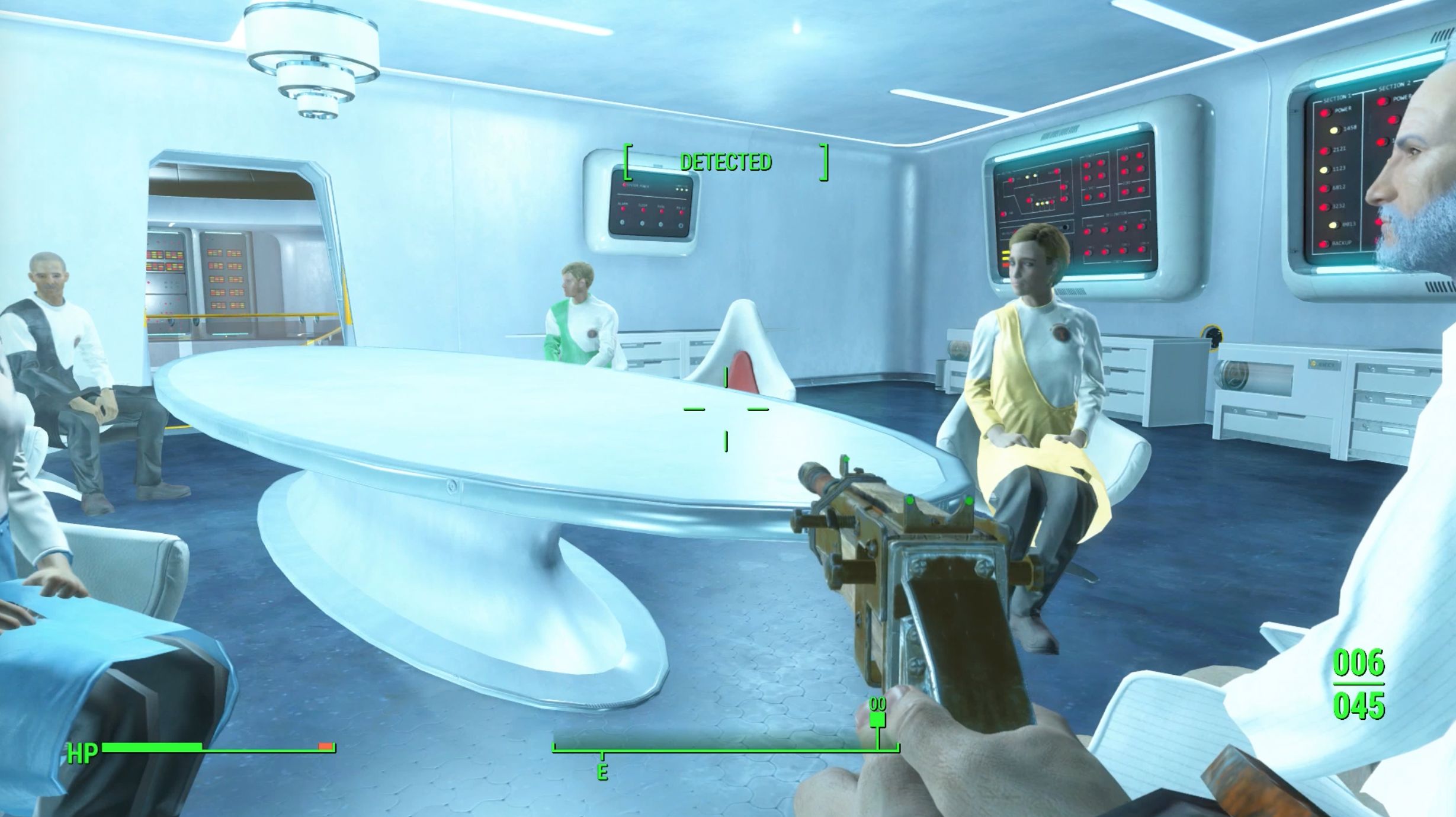 Fallout 4: Mankind Redefined walkthrough
Fallout 4: Mankind Redefined walkthrough You Won't Believe The Things You'll Find in Outer Space
You Won't Believe The Things You'll Find in Outer Space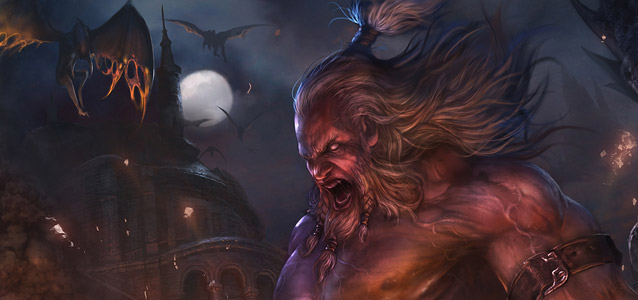 A Diablo III Guide: How to get to the Secret Level, Whimsyshire
A Diablo III Guide: How to get to the Secret Level, Whimsyshire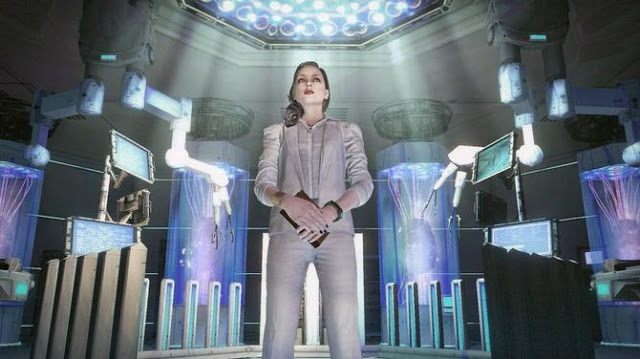 Resident Evil - Revelations 2 (PC) tips
Resident Evil - Revelations 2 (PC) tips